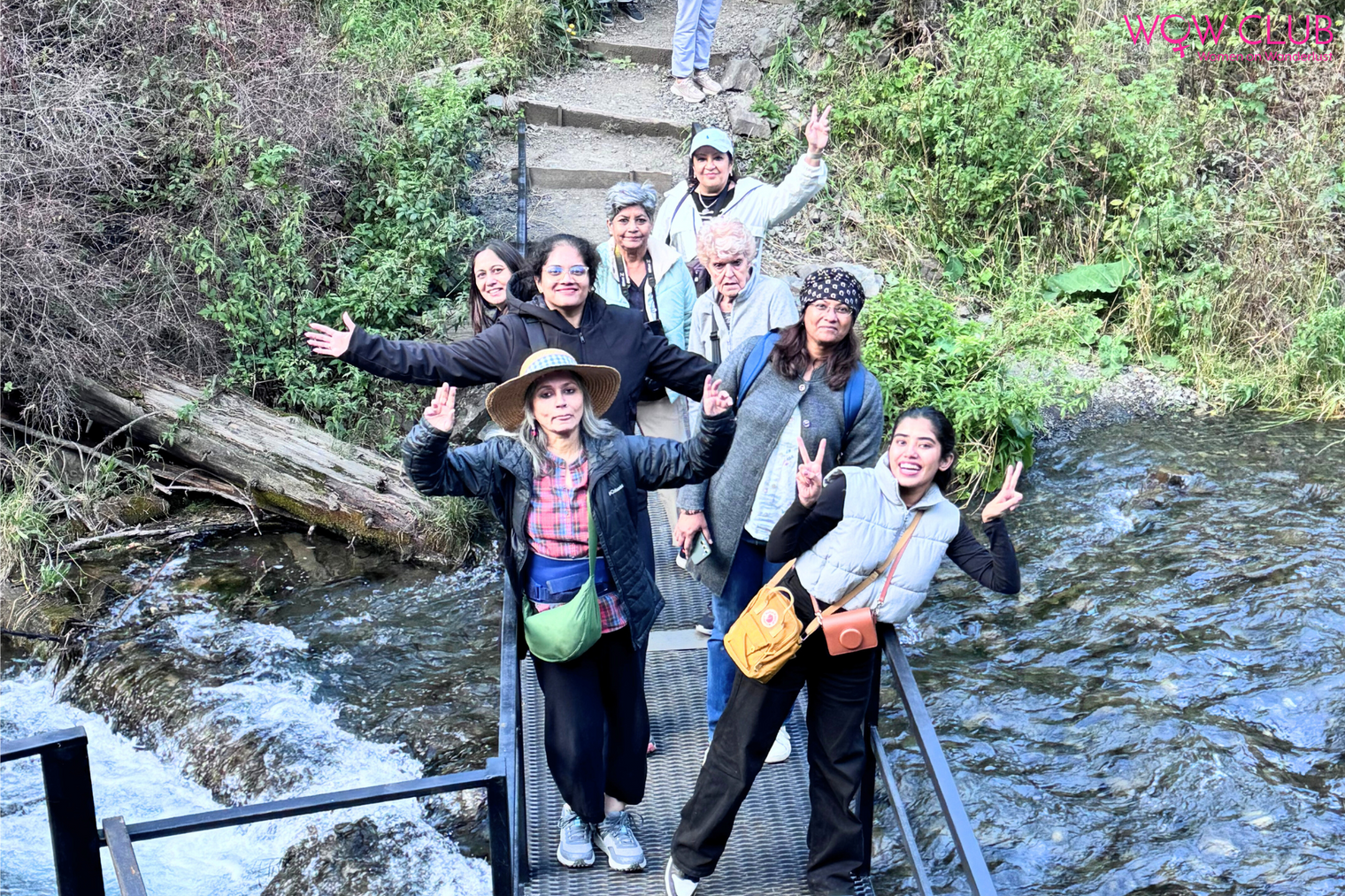Northern Ireland is the smallest of the countries making up the UK, but don’t let that fool you into thinking there isn’t much to do or see. Belfast and the Causeway Coast were rated one of the best regions to explore in the world for 2018 by Lonely Planet. From stunning coastlines to medieval castles, bustling towns and cities to peaceful lakelands, lush green forests, towering cliffs, heart stopping beaches and world class attractions Northern Ireland is truly a unique and attractive tourist destination.
Contents
Here is a short Itinerary to see the best of Northern Ireland
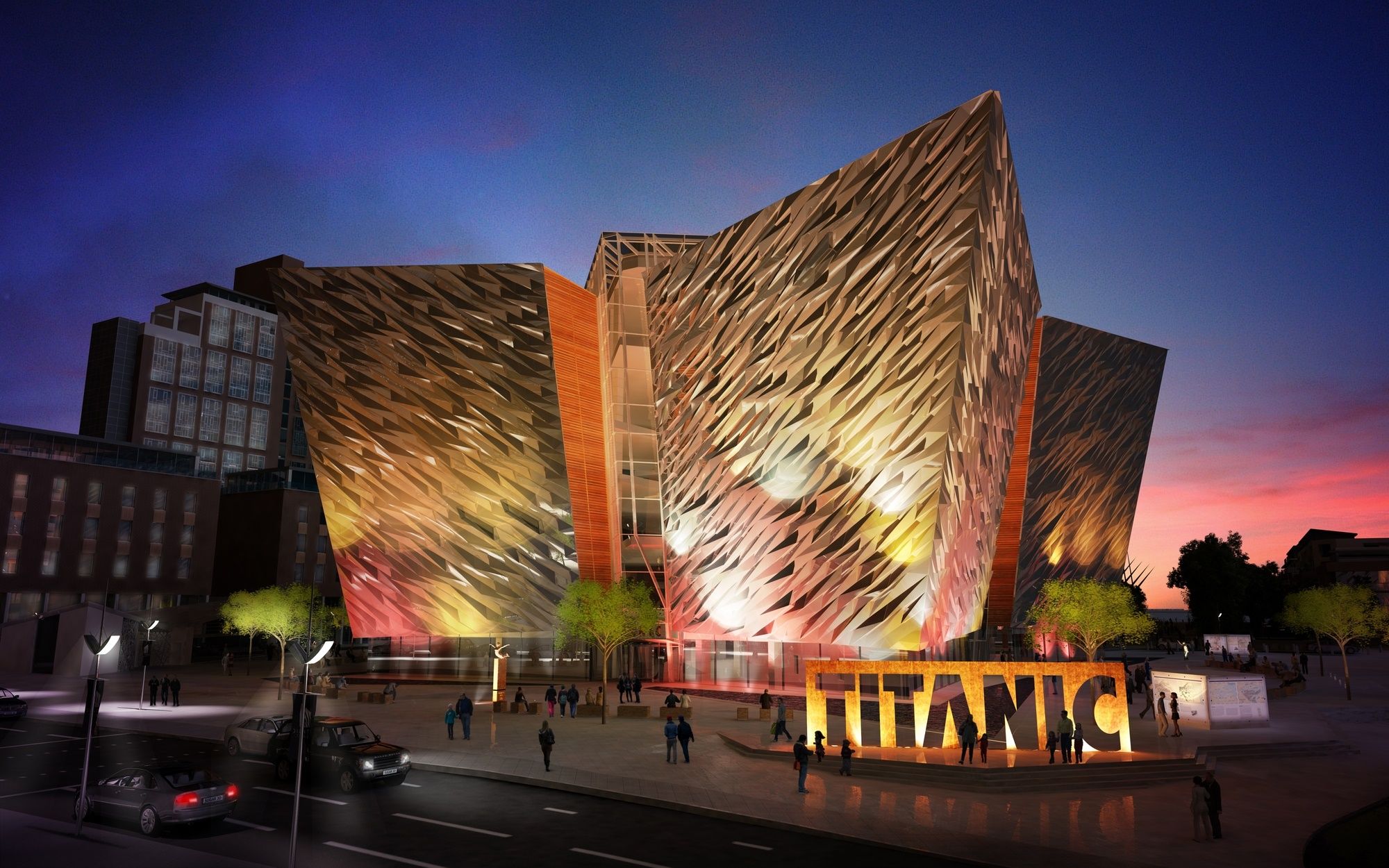
Day 1
- Once you arrive at Belfast, check out popular museum which serves as a memorial to the ill-fated RMS Titanic, which sadly plunged to the bottom of the ocean in 1912. It is an interactive museum, taking visitors through the stages of the Titanic and the whole experience takes at least two hours to complete. There’s even a ride partway through this self-guided museum tour.
- Next visit the Peace Walls of Belfast and the People’s Gallery in Derry to understand the struggles and challenges the people of Northern Ireland have faced over the years.These walls were constructed as a barrier between the Nationalist and Loyalist communities in Belfast and today, the walls are covered with striking murals depicting the violence and tumultuous times in Belfast and Northern Ireland.
WOW Pro Tip: You should take a Black Cab Tour where local drivers will show you around the local communities, the non touristic spots and at the Peace Wall while telling their personal stories and experiences.
- Next head to Belfast Castle, which is set on the slopes of Cavehill Country Park providing unobstructed views of the city of Belfast. You can enjoy the sun set here and conclude your day at Belfast by visiting one of the many club available.
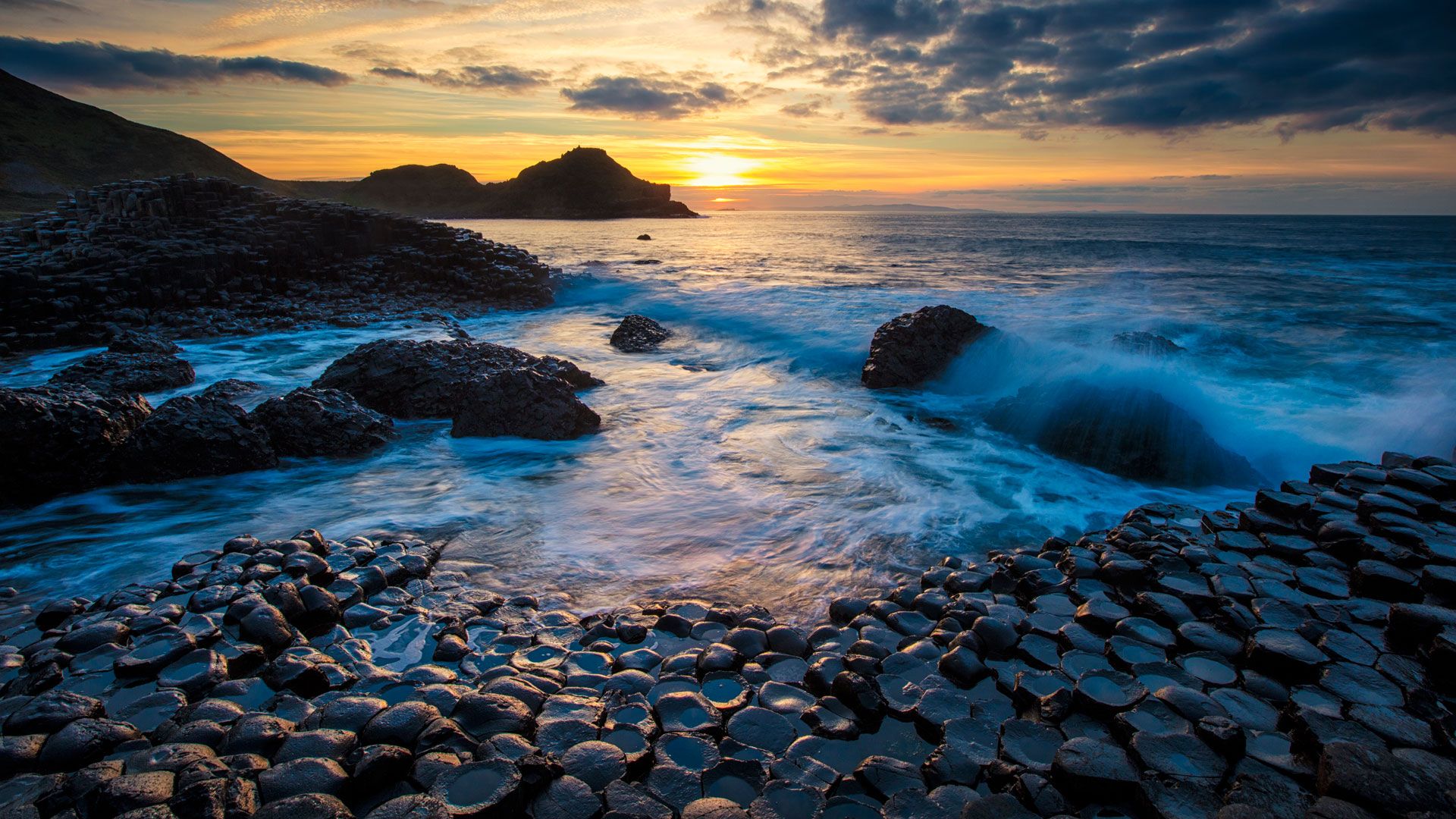
Day 2
Start your day two early on the Causeway Coastal Route! Legend has it that the Irish giant Fionn Mac Cumhaill built the causeway to walk to Scotland to fight his Scottish counterpart Benandonner.
- Admire the unique row of craggy trees, known as the Dark Hedges, as seen in Game of Thrones which is in the middle of the countryside.
- Kinbane Castle is a popular stopping point along the coastal route, however not much of the castle is left, but it is a truly magical but haunting place in Northern Ireland to explore. You will need your hiking shoes and to be reasonably in shape as the descent and ascent of the cliff. If you’re feeling brave enough, your next stop of the day should be Carrick-a-Rede rope bridge. Connecting the mainland with a small island off the coast, this bridge stretches 65 feet in length and hangs almost 100 feet above the water below.
- Wedged between the Carrick-a-Rede Rope Bridge and the Giant’s Causeway on your road trip of the Causeway Coastal Route, you’ll find Ballintoy Harbour. Not only is it another Game of Thrones filming location, but it’s one of the most breathtaking scenes on this entire journey.
- Stop at the most famous stop on the Causeway Coastal Route, Giant’s Causeway is one of the top things to do in Northern Ireland. Wander around this famous site consisting of approximately 40,000 interlocking basalt columns of varying heights.Giant’s Causeway formed after an ancient volcanic eruption, although there’s a local legend involving a duel between giants that ultimately created these hexagonal rocks.
- Catch the sunset at Dunluce Castle, which is located on the edge of a cliff in Co. Antrim, this crumbling medieval castle makes for some seriously stunning images. Also, it’s another filming location of Game of Thrones as the great castle of Pyke. End this amazing day at the city of Derry.
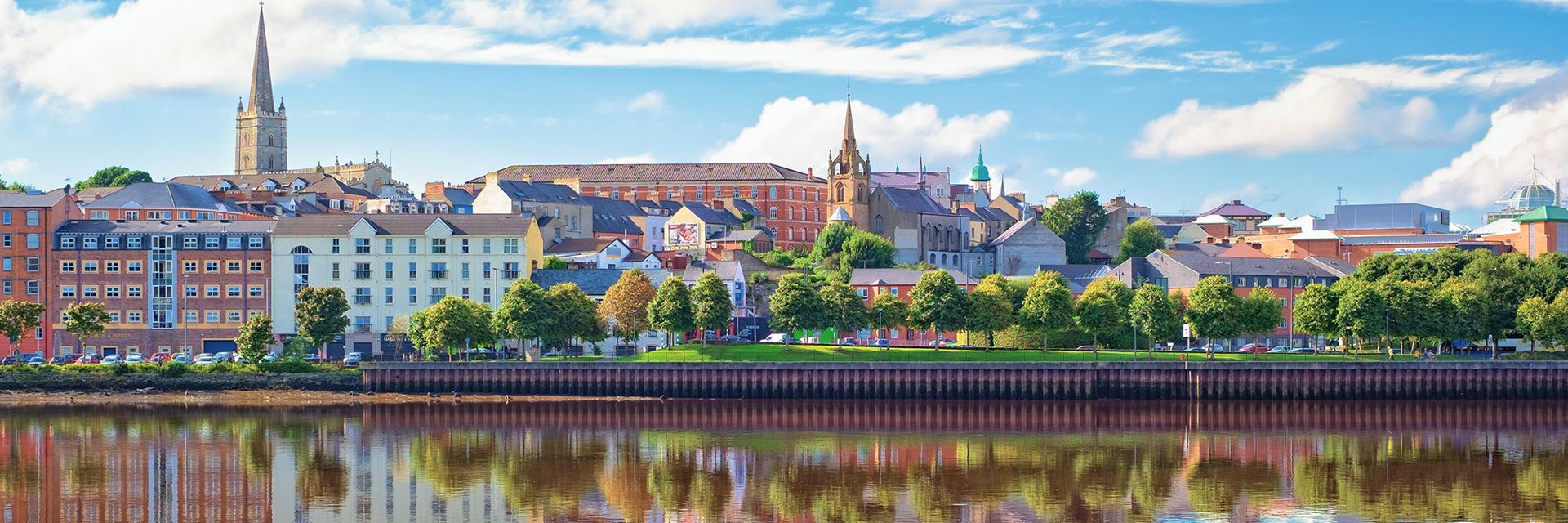
Day 3
- Derry, also known as Londonderry, in Northern Ireland, is home to a variety of world renown emotional murals commemorating the dangers and trauma of The Troubles, a 30 year long Irish/British conflict in the late 20th century. They tell the Republican story of rebellion, assassination attempts, and the brutal British crackdown that followed.
- Walk around Londonderry's city walls which are lined with cannons and appreciate the richness of the sights and attractions scattered around the city, which hark back to another era entirely. Did you know that Derry is the only city in Northern Ireland with fully intact fortification walls!
- In the Bogside neighbourhood, the People’s Gallery is one of the most poignant collections of street art in the world. These murals on the sides of building are a testament to the resilience of Derry’s citizens and what they’ve collectively endured for decades. As you’re viewing the People’s Gallery, you’ll discover the Free Derry Corner. The sign is all that remains of a row of homes, marking a self-declared nationalist region of town from 1969 to 1972.
- Know as the hidden jewel in Derry’s crown, the Craft Village is located in the heart of Derry City Centre. It is a reconstruction of an 18th-century street and 19th-century square and is lined with craft shops, balconied apartments, and coffee shops to stop and refuel.
- The Derry Peace Bridge is a pedestrian bridge that connects two areas of town that are separated by the River Foyle. Historically, the river divided the Protestant Waterside and the Nationalist Bogside, but this bridge unites both neighbourhoods and political sides. Wander around town and explore on your own two feet. You’ll stumble upon ancient cemeteries and churches, shops, pubs, unique architecture, and all the town has to offer.
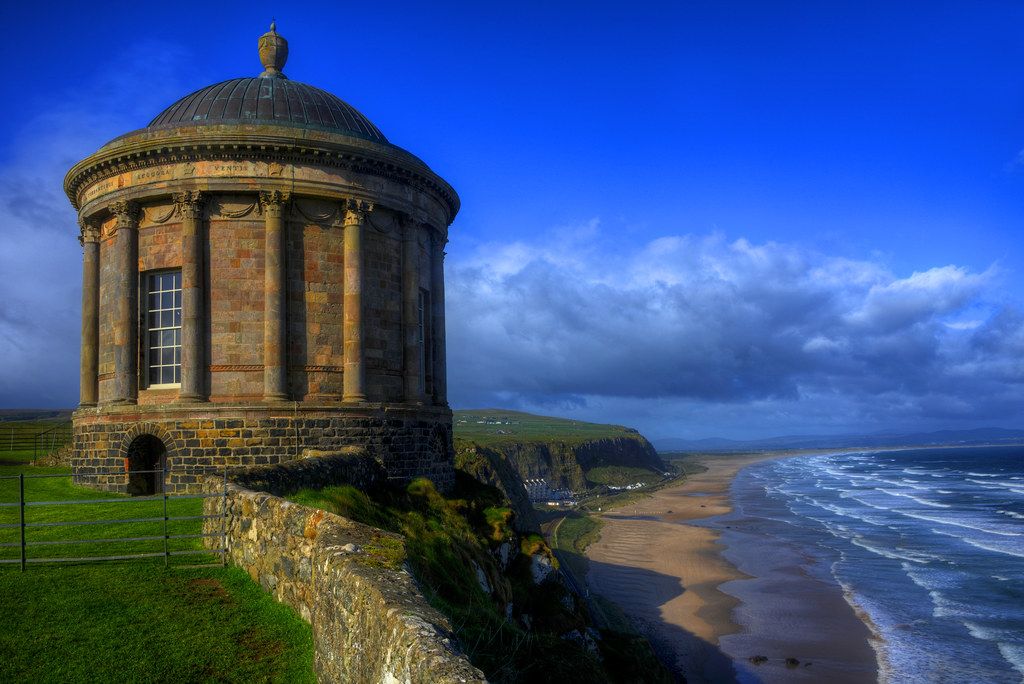
Day 4
- Start your day by first visiting the Magilligan Point which guards the entrance to Lough Foyle at the tip of one of the British Isles’ largest sand dune systems. Also see the Martello Tower, one of best preserved of a chain built to defend the coast of Ireland during the Napoleonic Wars.
- Next, experience the wild and dramatic setting of Downhill Demesne. Beyond the ruined mansion lies one of our most iconic monuments - the circular Mussenden Temple, perched on a cliff edge high above Downhill Beach. Don’t miss a visit to Hezlett House, a picturesque, late 17th century thatched cottage.
- Take a guided tour through the heart of Ireland’s oldest working distillery. The finest Irish whiskeys have been produced at Old Bushmills Distillery for over 400 years, using the same traditional methods and the water from the distillery’s own stream.
WOW Pro Tip: Enjoy tutored tastings and relax with a whiskey in the 1608 Bar at the end of your tour.
- Enjoy a stroll on Whitepark Bay spectacular sandy beach which forms a white arc between two headlands on the North Antrim Coast. Your only company might be the cows who are known to rest on the beach.
- Take time to explore the famous Glens of Antrim. There are nine altogether, each with its own scenic drive, with lyrical names such as Glencloy, Glentaisie and Glenballyemon. Don’t miss Glenariff Forest Park, set in the ‘Queen of the Glens’, with bracing walks and beautiful waterfalls.
- Excite all the senses on the Gobbin's exhilarating cliff-face path. Located on the scenic Islandmagee peninsula,the dramatic and challenging path includes spectacular tubular and suspension bridges, caves, steps and tunnels. There is also a fascinating Visitor Centre and cliff-top path.
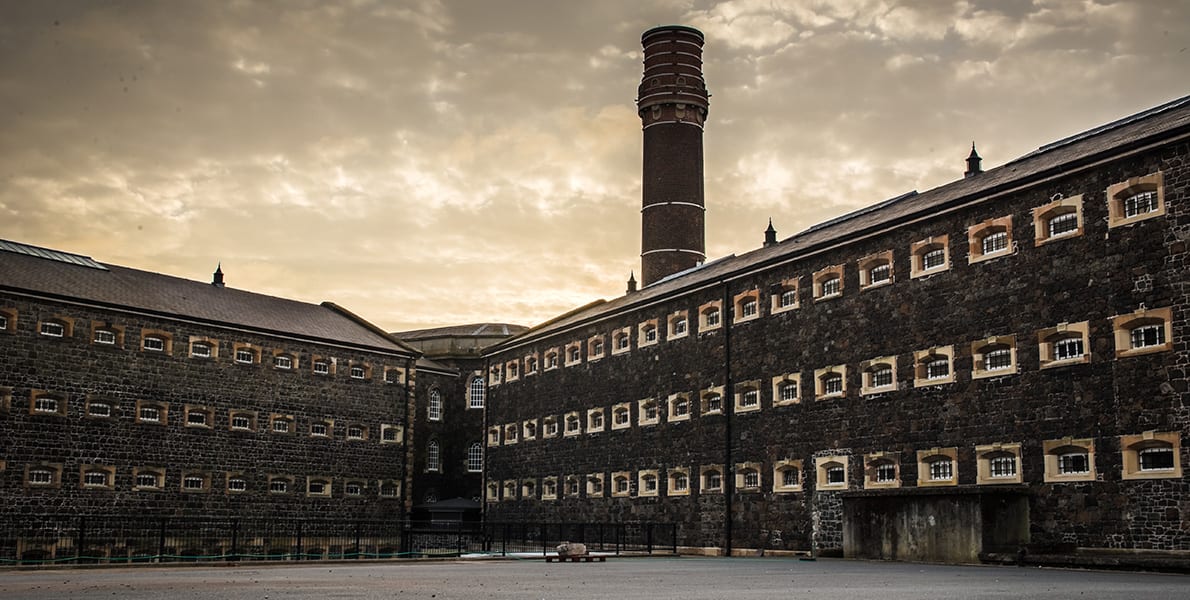
Day 5
- Before your flight back home, visit the once notorious jail, Crumlin Road Gaol which has quickly become one of Belfast's premier visitor attractions. You can wander through the underground tunnel that used to connect the jail to the courthouse, sit in the Governor's chair and, rather gruesomely, pay a visit to the condemned men's cell. Guided tours are available, including special themed affairs that even include a show and dinner.
How to reach Northern Ireland?
Northern Ireland is served by two major airports, both in Belfast. There are many airlines offering direct flights into Belfast from several destinations in the UK and Europe as well.
If you’re coming from the Republic of Ireland, catching the train or bus from Dublin is a super cheap and easy way to reach Belfast. You can also drive or take a ferry to cross the border.
WOW Pro Tip: Renting your own car is highly recommended to stop and enjoy the beautiful sites as per your preference.
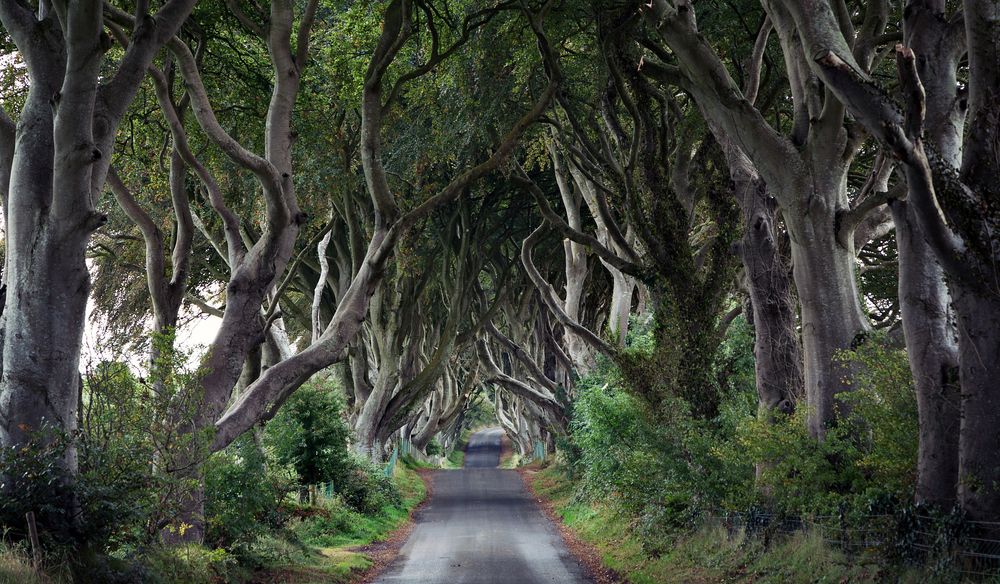
Do you love Game of Thrones?
The fans of Game of Thrones knows that Northern Ireland has been widely used for shooting sequences, some iconic locations include the Antrim plateau, the Dark Hedges, Cushendun Caves, Murlough Bay, Ballintoy Harbour, Larrybane, Castle Ward, Inch Abbey, and Downhill Strand.
WOW Pro Tip: You can choose from multiple day tours which will take you to the best of Game of Thrones shooting locations.




